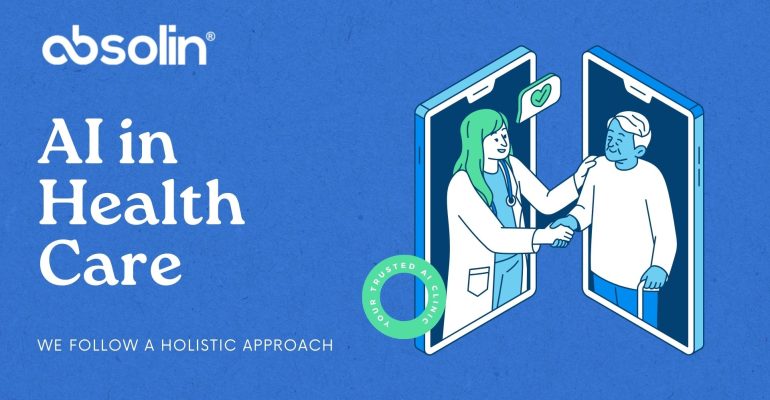AI in Healthcare: Transformative Applications and Ethical Considerations
Introduction:
Artificial Intelligence (AI) is revolutionizing the healthcare industry, offering transformative solutions to complex challenges and driving innovation in patient care, diagnosis, treatment, and more. However, as AI becomes increasingly integrated into healthcare systems, it’s crucial to consider the ethical implications and ensure responsible deployment to safeguard patient privacy, autonomy, and well-being. In this blog post, we’ll explore the groundbreaking applications of AI in healthcare and examine the ethical considerations that accompany its adoption.
1. Medical Imaging and Diagnosis:
AI-powered medical imaging technologies, such as machine learning algorithms and computer vision systems, are enhancing diagnostic accuracy and efficiency across various medical specialties. From detecting tumors in radiology to identifying abnormalities in pathology slides, AI algorithms analyze vast amounts of medical imaging data to assist healthcare providers in making more accurate and timely diagnoses.
2. Personalized Medicine:
AI is revolutionizing the field of personalized medicine by analyzing vast amounts of patient data, including genetic information, medical history, and lifestyle factors, to tailor treatment plans and interventions to individual patients. By leveraging predictive analytics and machine learning algorithms, healthcare providers can optimize treatment efficacy, minimize adverse effects, and improve patient outcomes.
3. Virtual Health Assistants:
Virtual health assistants powered by AI technologies, such as natural language processing (NLP) and machine learning, are transforming patient engagement and care delivery. These virtual assistants can answer patient inquiries, schedule appointments, provide medication reminders, and offer personalized health recommendations, enhancing patient satisfaction and adherence to treatment plans.
4. Predictive Analytics and Population Health Management:
AI-driven predictive analytics models analyze large datasets to identify patterns and trends in population health, enabling healthcare providers to anticipate and mitigate disease outbreaks, optimize resource allocation, and improve preventive care strategies. By predicting disease risk and identifying high-risk patient populations, AI facilitates proactive interventions to improve population health outcomes.
5. Drug Discovery and Development:
AI is revolutionizing the drug discovery and development process by accelerating the identification of novel therapeutic targets, predicting drug efficacy and safety profiles, and optimizing clinical trial design. AI algorithms analyze vast datasets, including genomic data, molecular structures, and clinical trial data, to identify promising drug candidates and expedite the development of new treatments for various diseases.
Ethical Considerations:
1. Data Privacy and Security:
Ensuring the privacy and security of patient data is paramount in AI-driven healthcare systems. Ethical considerations include obtaining informed consent for data collection and use, implementing robust security measures to protect sensitive information, and adhering to data privacy regulations such as HIPAA (Health Insurance Portability and Accountability Act) and GDPR (General Data Protection Regulation).
2. Algorithm Bias and Fairness:
Addressing algorithm bias and ensuring the fairness of AI-driven healthcare algorithms is crucial to prevent disparities in patient care. Ethical considerations include evaluating algorithms for biases related to race, ethnicity, gender, and socioeconomic status, and implementing measures to mitigate bias and promote algorithm transparency and accountability.
3. Patient Autonomy and Informed Consent:
Respecting patient autonomy and ensuring informed consent in AI-driven healthcare interventions is essential to uphold ethical principles. Healthcare providers must involve patients in decision-making processes, provide transparent information about AI technologies and their potential implications, and empower patients to make informed choices about their care.
4. Accountability and Transparency:
Ensuring accountability and transparency in AI-driven healthcare systems is essential to maintain trust and ethical standards. Healthcare providers and developers must be transparent about the capabilities and limitations of AI technologies, take responsibility for their decisions and actions, and establish mechanisms for accountability and recourse in case of adverse outcomes or errors.
Conclusion:
AI has the potential to revolutionize healthcare by offering transformative applications that enhance patient care, diagnosis, treatment, and population health management. However, as AI becomes increasingly integrated into healthcare systems, it’s crucial to address the ethical considerations to ensure responsible deployment and safeguard patient privacy, autonomy, and well-being. By addressing these ethical considerations and upholding ethical principles, AI-driven healthcare technologies can realize their full potential to improve patient outcomes and advance the delivery of healthcare services.






